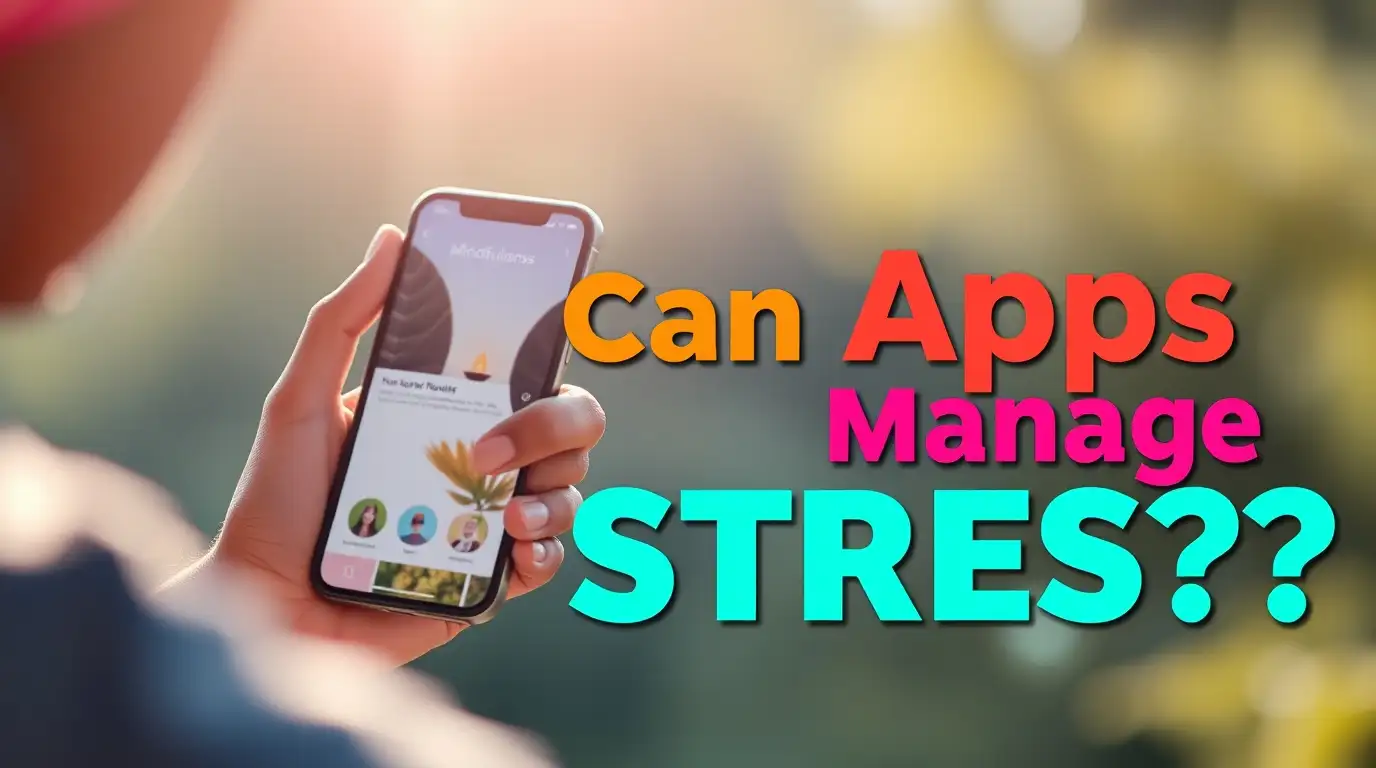Introduction
In today’s fast-paced world, stress has become a constant companion for many. Enter digital well-being apps—technological tools designed to help manage stress, build mindfulness, and enhance mental wellness. But how effective are these apps?
This post explores the promises and pitfalls of digital well-being apps, offering insights into their potential to transform stress management in the digital age.
How Digital Well-Being Apps Work
Digital well-being apps are designed to help users manage stress through a variety of features, including:
- Mindfulness Exercises: Guided meditations, breathing techniques, and relaxation sessions.
- Activity Monitoring: Tracking screen time, sleep patterns, and physical activity to encourage healthier habits.
- Mood Tracking: Recording daily emotions to identify triggers and patterns.
- Gamified Wellness: Using challenges and rewards to motivate users to stay consistent with stress-reducing practices.
Popular examples include Calm, Headspace, Forest, and MindDoc.
Also check: How Personality Influences Your Decision-Making Style
The Benefits of Digital Well-Being Apps
1. Accessibility and Convenience
These apps bring stress management to your fingertips, allowing you to practice mindfulness or track habits anywhere, anytime.
2. Personalization
Many apps use AI to offer customized recommendations based on your goals, mood, or stress levels.
3. Affordability
Compared to therapy or wellness retreats, apps provide a cost-effective way to manage stress.
4. Habit Building
Features like streak counters and reminders encourage consistency, making it easier to adopt healthy routines.
Limitations of Digital Well-Being Apps
1. Over-Reliance on Technology
Using apps to manage stress might inadvertently increase screen time, which can sometimes contribute to stress.
2. Generic Solutions
While personalization is improving, apps may not address complex or unique stress triggers.
3. Privacy Concerns
Apps collect sensitive data, raising questions about how securely this information is stored or shared.
4. Lack of Depth
Digital well-being apps are great tools but cannot replace professional therapy or in-depth mental health interventions.
Maximizing the Benefits of Digital Well-Being Apps
- Set Clear Goals: Choose apps that align with your specific stress management needs, whether it’s relaxation, productivity, or mood tracking.
- Use in Moderation: Balance app usage with offline activities to avoid over-reliance on technology.
- Combine with Other Strategies: Pair app-based practices with physical activities, therapy, or social support for comprehensive stress management.
- Review Privacy Policies: Ensure the app complies with data privacy laws like GDPR or HIPAA before using.
The Future of Digital Well-Being Apps
As technology advances, digital well-being apps will likely integrate more sophisticated features, such as AI-driven emotional analysis or VR-based relaxation techniques. However, the human element in stress management—connection, empathy, and interaction—will always remain irreplaceable.
FAQs About Digital Well-Being Apps
1. Are digital well-being apps effective for managing stress?
Yes, they can be effective for building mindfulness and healthy habits. However, their success largely depends on consistent use and the specific needs of the user.
2. Can digital well-being apps replace therapy?
No, these apps are supplementary tools that cannot replicate the depth or expertise of professional therapy.
3. Are there free digital well-being apps?
Many apps like Insight Timer and Oak offer free versions, though premium features may require a subscription.
4. How do I choose the best app for me?
Identify your primary goals (e.g., relaxation, focus, habit tracking) and look for apps with features that cater to those needs. Reviews and trial periods can also help.
5. Are digital well-being apps safe to use?
Most reputable apps are safe, but you should review privacy policies and user reviews to ensure data security.
Conclusion
Digital well-being apps offer innovative ways to manage stress, combining convenience, affordability, and effectiveness. While they’re not a one-size-fits-all solution, these apps can be valuable allies in your journey to a healthier, stress-free life.
Have you tried any digital well-being apps? Share your experiences in the comments below!









